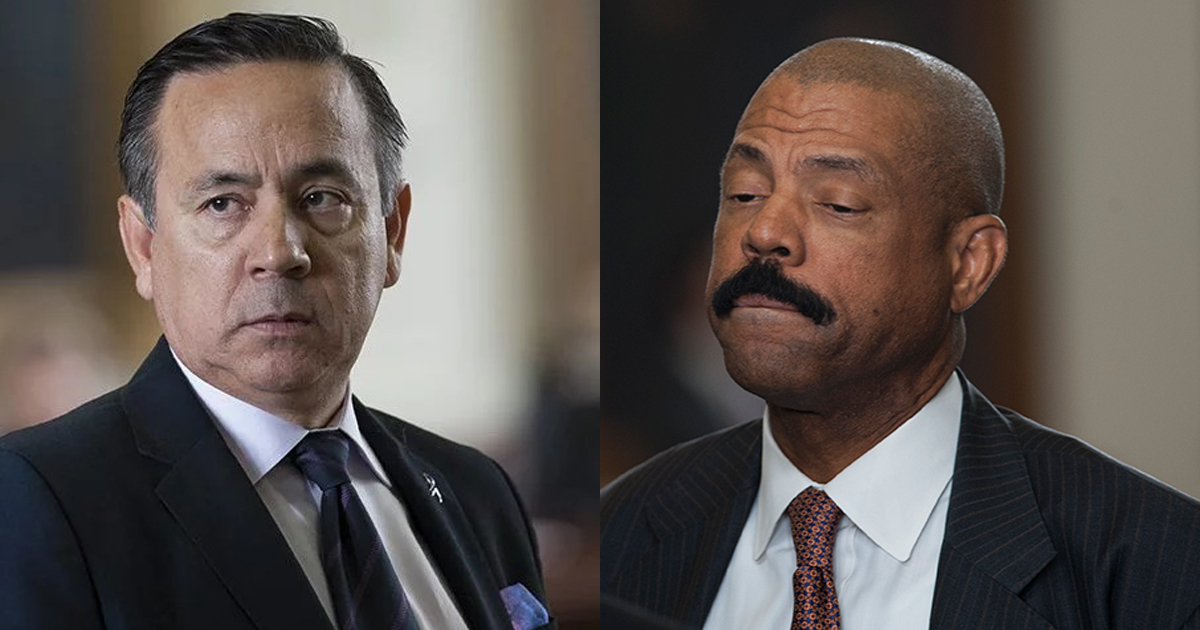
Five Months After Sexual Misconduct Allegations Surface, Still No Changes to Senate Policy
Senator Lois Kolkhorst, who has been tasked with developing the new policy, said it will be released in the “near future.”
In the weeks after multiple allegations of sexual misconduct were made against two Texas senators last year, their colleagues called for “zero tolerance” and said changes “must happen now.” Five months later, lawmakers still haven’t updated the Senate’s 23-year-old, one-page policy, which doesn’t establish a formal process for investigating complaints.
“For months, there have been rumors that a revised policy will be released for the Senate to review, but it hasn’t happened,” Senator Kirk Watson, D-Austin, wrote in an email. “We haven’t received any word about next steps, if there will be future public hearings, or how the Senate will adopt changes to our policy.” Asked when an updated policy is expected, Watson wrote, “At this time, I have no expectations.”
Shortly after the Daily Beast published the allegations against Democratic state Senators Carlos Uresti and Borris Miles in early December, Lieutenant Governor Dan Patrick tasked Senator Lois Kolkhorst, R-Brenham, with reviewing and updating the Senate’s policy on sexual misconduct. “I understand there are rumors, innuendos and allegations in both the House and Senate about both members and staff having inappropriate behavior. Sexual harassment should not and will not be tolerated in the Texas Senate,” Kolkhorst told the Observer at the time.

Still, at a December 14 meeting of the Senate Administration Committee, which Kolkhorst chairs, senators heard only from the Secretary of the Senate and the head of human resources. Not once were senators Miles and Uresti mentioned by name during the hearing.
“It was surprising to me that … no time was given to the public for testimony,” Senator Sylvia Garcia said of the hearing in an email to the Observer. “We should allow the public to be heard in a meaningful way and that must be in an additional public hearing.”
Since then, Kolkhorst has met with staff from every senator’s office to discuss the issue and performed “an exhaustive review” of policies from other states and state agencies, she told the Observer this month. “A revised Senate policy will be reviewed and released in the near future,” she wrote in an email. Asked for a more specific timeline, her office did not respond.
Meanwhile, the Texas House issued a sexual harassment policy in early December, three weeks after the Daily Beast wrote about a “Burn Book of Bad Men” circulating among women working in Texas politics. While the House policy has its shortcomings, it establishes channels to report sexual harassment, provides mental health resources for victims and trains staff on sexual harassment.
The Texas Senate’s current sexual harassment policy, on page 95 in the Senate employee handbook.
The Senate policy hasn’t been updated since 1995, and lawmakers say there is not yet an effective avenue for reporting and investigating complaints that victims would be comfortable pursuing. Senator Judith Zaffirini, D-Laredo, a member of the Administration Committee, told the Observer that people have come to her confidentially over the years about problems with their bosses or others at the Capitol. Theoretically, all complaints are recorded by the Secretary of the Senate, but there have been no formal allegations of sexual harassment in more than 17 years.
Instead, without a clear avenue for victims to report sexual harassment at the Senate, women turned to the media to share their accusations against Miles and Uresti. In December, Zaffirini said that the allegations are “extremely troubling and deserve a serious investigation,” and along with other senators called for “due process.” This month, she said that she didn’t think an official complaint had been filed, so the allegations couldn’t be investigated.
“I’m sure every woman in the Senate has been sexually harassed at one point or another in her life.”
The catch-22 underscores the need for a neutral third party to collect and investigate claims, a proposal that Zaffirini and others have voiced in recent months, and which she shared with Kolkhorst. Otherwise, fearing retribution, victims may not come forward, Zaffirini said.
While not all victims of sexual harassment are female, Zaffirini said in an interview that she felt the women in the Senate would “identify more easily with the victims.”
“The women of the Senate should get together and discuss the policy,” and bring it to the male lawmakers, she said. “I’m sure every woman in the Senate has been sexually harassed at one point or another in her life.”


